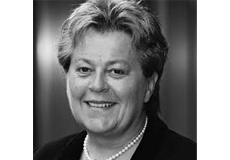Julia Graham
Boards have a growing responsibility for risk oversight, opening exciting opportunities for risk managers. But the risk profession must demonstrate it has the skills to meet the changing needs of businesses.
Since the financial crisis, there has been an increasing emphasis on the risk oversight responsibilities of board members. They have a variety of crucial risk-related responsibilities, including defining the organisation’s risk appetite, gaining assurance concerning the robustness of risk management policies and controls, and promoting an appropriate risk culture throughout the organisation. Realistically, to succeed they need an active partnership with risk managers and other risk-related internal and external stakeholders.
This is the conclusion of an event organised this summer by the Federation of European Risk Management Associations (FERMA) with AIG and the European directors’ organisation ecoDA to bring together the perspectives of board members and risk managers in a unique opportunity for discussion. For the risk management profession, this is a major opportunity to evolve from the role of technical specialist to that of strategic board advisor, with significant influence over a wide range of corporate decision-making.
Although the tone for risk, risk culture and risk appetite is set from the top of the organisation, the risk management professional can step up as a risk leader to help the board deliver its risk responsibilities. We at FERMA, alongside member organisations such as Airmic, believe it’s important to ensure that risk managers have the professional skills and mind-set they need to become tomorrow’s risk leaders.
What is more, we also have to think in terms of future-proofing. Companies are facing disruptive new business models and technologies – Uber, airbnb, drones, and driverless cars are already a reality; more exciting innovations will follow. Businesses must therefore take risks to succeed while at the same time managing compliance requirements within the context of increasing levels of regulation and ever-increasing demands for governance and disclosure.
Our future
FERMA has three themes which provide a framework for our current strategic activities: profession, innovation and diversity. We believe these themes provide the foundation for our members to become risk leaders within their evolving organisations. They form the basis of the programme of our 2015 Risk Management Forum, Living and Working in a Riskier World, which will take place in Venice starting on 4 October.
Profession is critical. We need to demonstrate that we have the right skills and experience to meet the needs of organisations as they tackle emerging risks from new technologies, new types of competition, complex interconnected supply chains and shifting political and economic challenges. For this reason, FERMA has devoted the last two years to the development of European Certification of Risk Management Professionals which we will launch at the Forum in October.
Innovation is necessary to respond to the evolving nature of organisations and the changing nature of their risks. Cyber risks and non-damage business interruption are some of the most obvious examples for which we are still developing solutions. Organisations are also looking for new approaches to the management of their traditional risks and we need to support the stretching of current thinking and response by insurers and brokers to innovation.
Diversity is not just a matter of social justice but because it has become clear there is strength in the various abilities and attitudes that different people bring to organisations, including their gender, ethnic background, nationality, orientation and physical abilities. We aim to make a difference. Please join us at the FERMA Forum in Venice from 4-7 October to discuss these issues.
The author, Julia Graham, is FERMA president and Airmic technical director.



